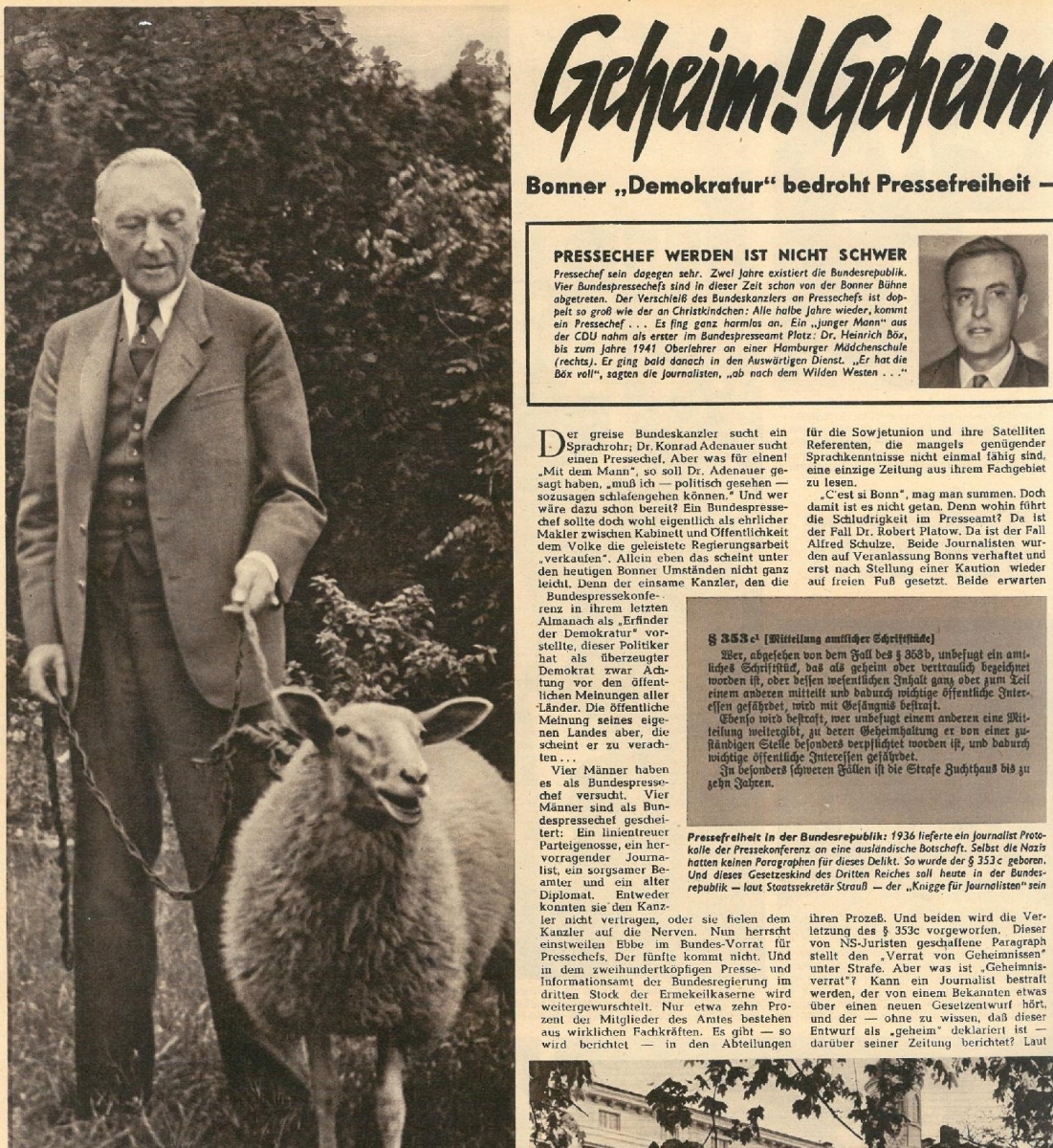Completed Research project
(The project was processed from December 1, 2017 to December 31, 2019 by Eszter Kiss)
The Federal Office of Information (Bundespresseamt, BPA) was founded in October 1949 as part of the Federal Chancellery and became a supreme Federal authority in 1958. Its task is to provide information to the government and to communicate the government’s actions and policies to the population. Thus, the Office of Information operates in the field of propaganda, which was doubtlessly for a time tainted by the National Socialists.
The project focused on continuities in the staff and in practices of public communication. The core question was whether the Federal Office practised a kind of information policy similar to that of Nazi propaganda or whether it acted as a democratic institution in a post-war media society, which was liberalised under the influence of its the Western Allies. Case studies were address the negotiations on financial compensation for Israel (1952), the Eichmann Trial, the Spiegel Affair of 1962 and the hostage crisis of the Munich Olympics (1972). In this context, the project wanted also investigate the visual policy of the Federal Government as implemented by the Photo Department of the BPA (Bundesbildstelle).
The project was part of the larger project on 'The Chancellery. German Federal Democracy and the Nazi Past’.
Book publication:
Jutta Braun, Nadine Freund, Christian Mentel, Gunnar Take Das Kanzleramt Bundesdeutsche Demokratie und NS-Vergangenheit, Wallstein Verlag, 2025


